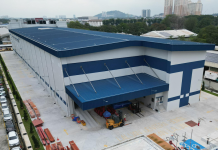On 21 June 2023, the US Department of Commerce initiated antidumping (AD) and countervailing (CVD) investigations on the import of certain paper shopping bags from Cambodia, the People’s Republic of China, Colombia, India, Malaysia, Portugal, Taiwan, the Republic of Turkey, and the Socialist Republic of Vietnam. The petitioners are the Coalition for Fair Trade in Shopping Bags, the members of which include Novolex Holdings, of Charlotte, North Carolina, and the Pittsburgh, Pennsylvania-headquartered employees union known as the United Steel, Paper and Forestry, Rubber, Manufacturing, Energy, Allied Industrial and Service Workers International Union. The International Trade Commission’s preliminary determination on both AD and CVD was to take place on 17 July 2023 and, if affirmative, then the preliminary determination by the US Commerce Department preliminary determination on AD will be declared on 7 November 2023 and for the CVD on 24 August 2023.
The DOC import statistics state that imports of paper bags from China were the most of countries named at US$ 336.9 million; second was Vietnam at US$ 143.9 million; and, in third place was India at US$ 65.6 million. If the ITC and DOC make preliminary affirmative determinations, US importers will be required to post cash deposits in the amount of the AD and/or CVD duties for all entries of the subject merchandise entered on or after the date of publication of DOC’s preliminary determinations. The preliminary AD/CVD rates can change in the final DOC determinations, following further factual investigation, verification, and briefing.
We spoke to Adeera’s CEO Sushant Gaur last on the telephone to get his views on this situation that affects the company’s plans to build a paper bag-making plant in the US. Gaur was upfront that the situation has become extremely adverse to his company’s plans since the US investment was based on continued exports to that country firstly for generating the cash needed for it, and secondly for continued support to the US project from his company’s Indian plants for certain types of paper bags. The American project was conceived as a part of a global supply business ecosystem – from raw materials, to manufacturer to market. In any case, many types of paper bags are not part of the current investigations.
Gaur explained to us that the first crisis for global paper bag exporters to the US is that the dumping duties, which range for the various countries named from 12.51% to 324.24%, will have to be deposited even while the investigation and determinations proceed and that they may be applied retroactively as well. Seventeen Indian companies have been specifically named and the alleged margin of dumping and subsidization for them is from 22.05% – 88.56%.
Gaur has appealed to the cohort of Indian paper bag manufacturers to get together to put in their views on this investigation. He says that the legal costs will be considerable and has issued a YouTube video asking his paper manufacturers and exporter to take the matter seriously and understand that it is in their interest to be a part of the process or the litigation rather than seeing it either as a fait accompli since the effects of the determination if any, are likely to have consequences for five years.










